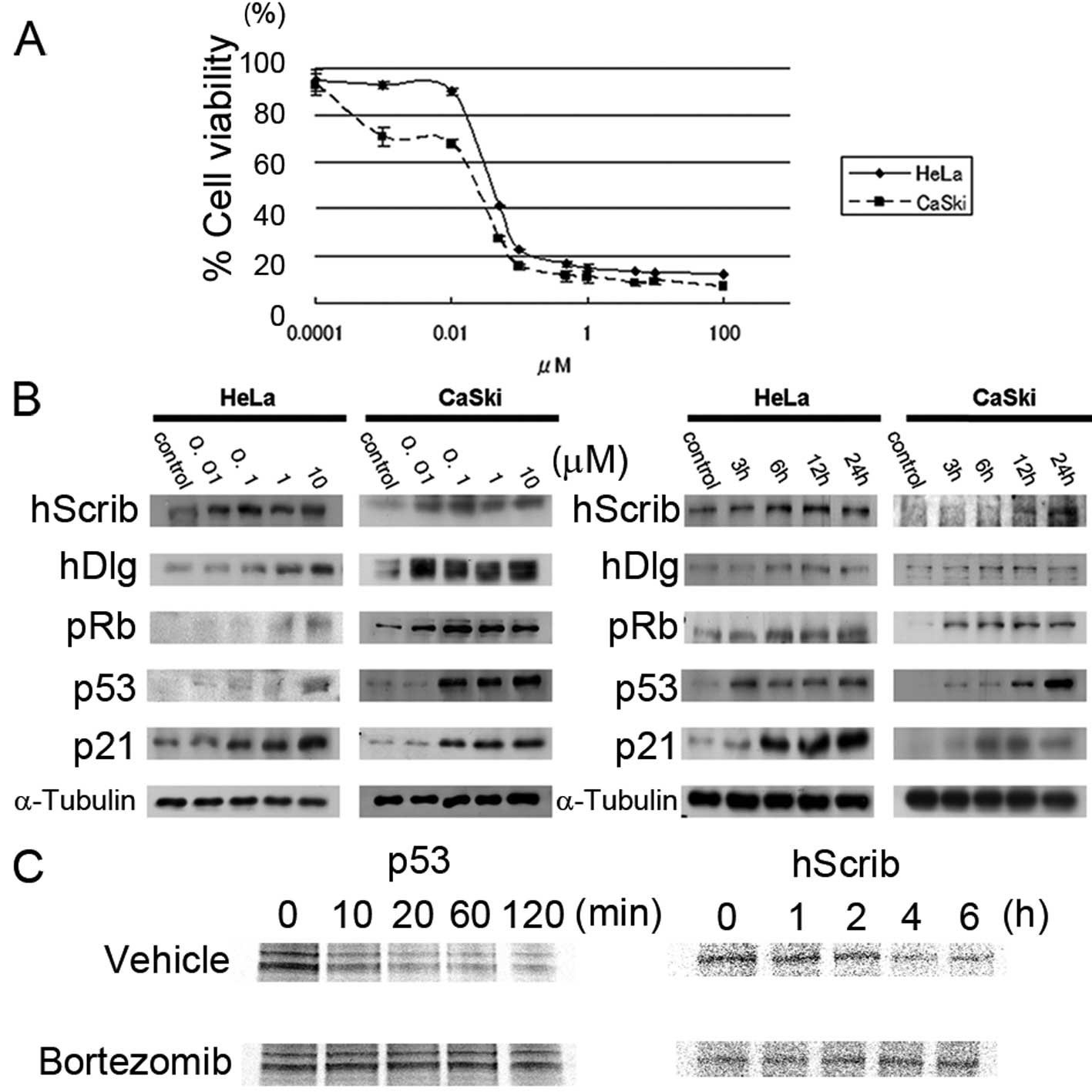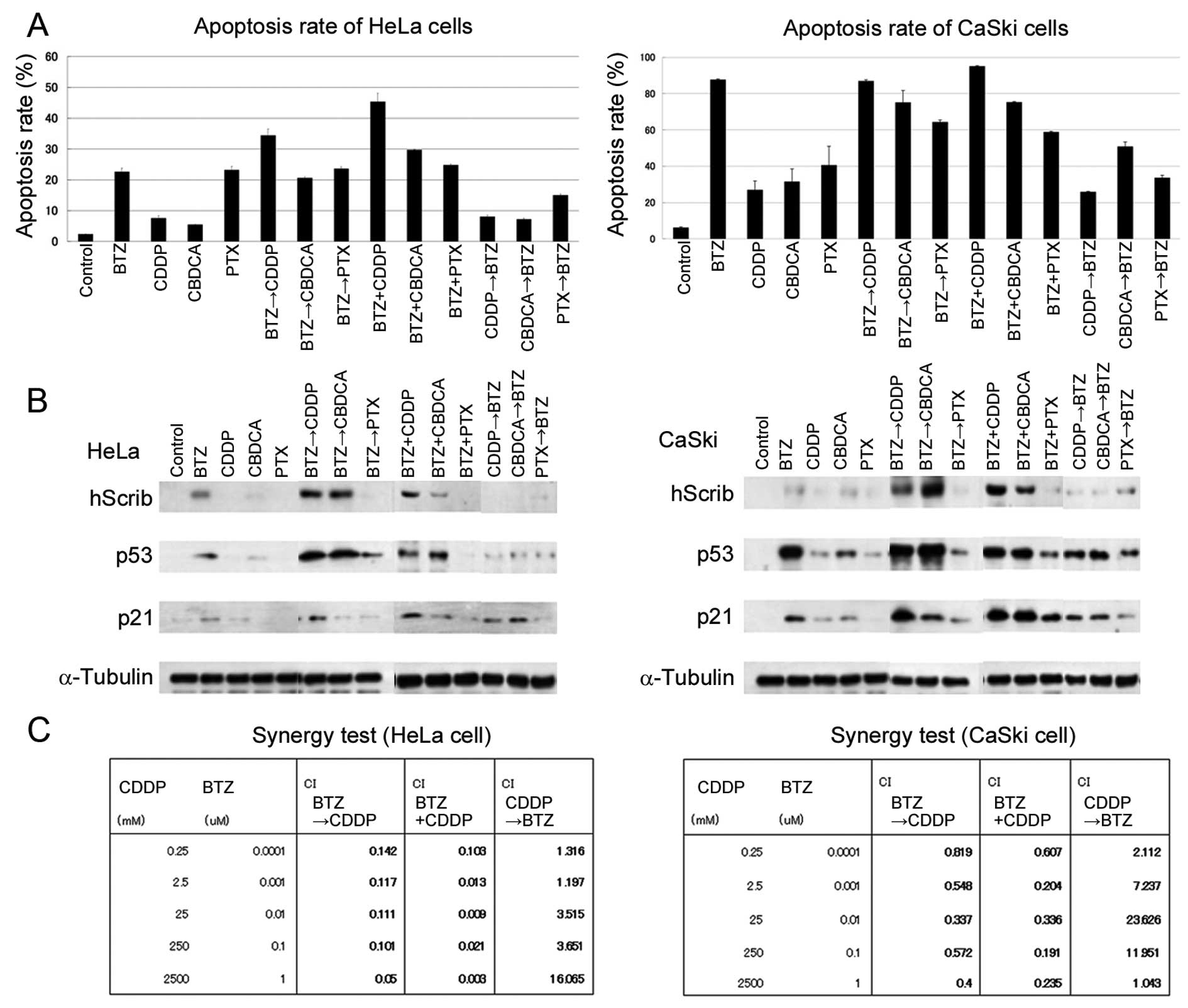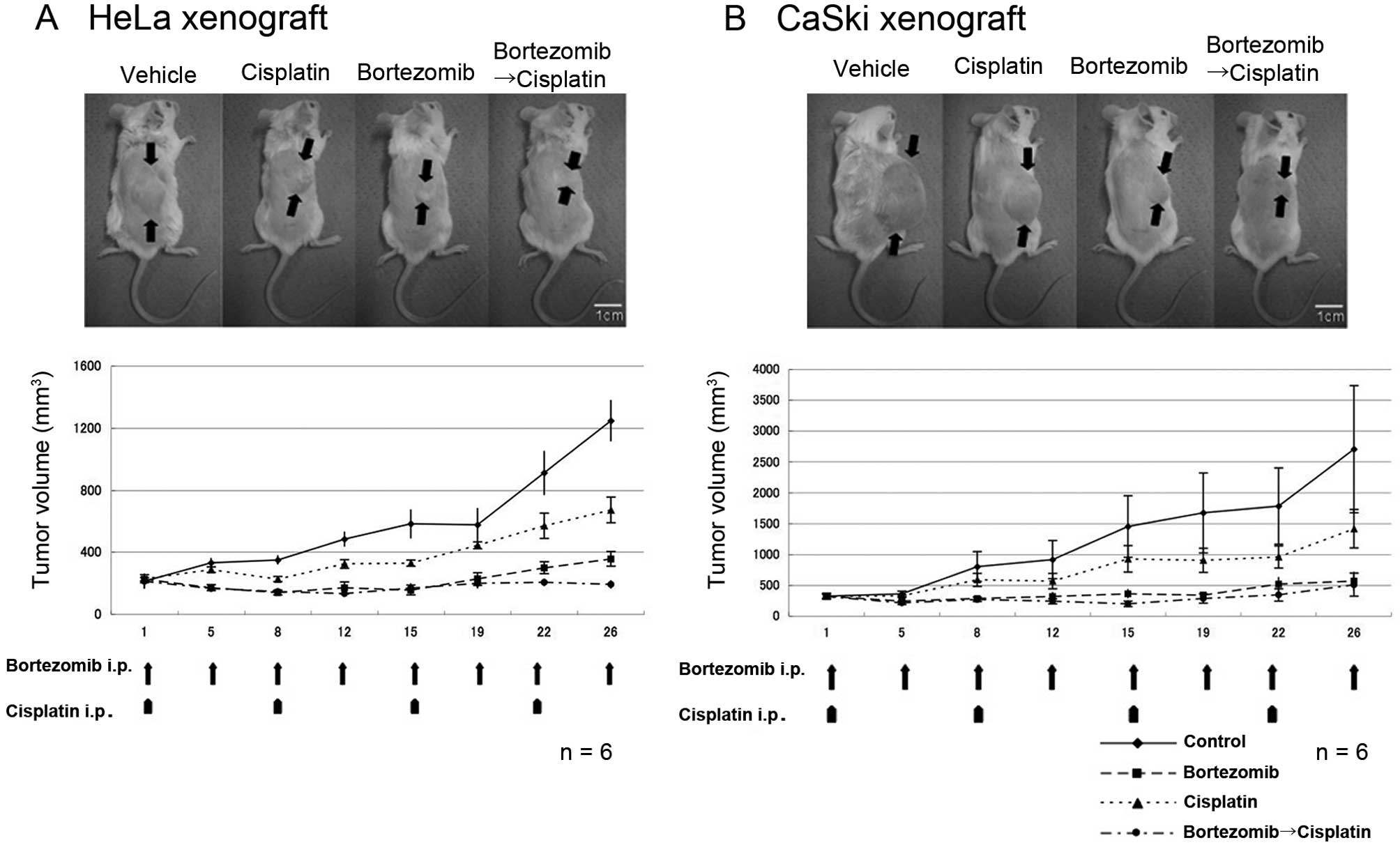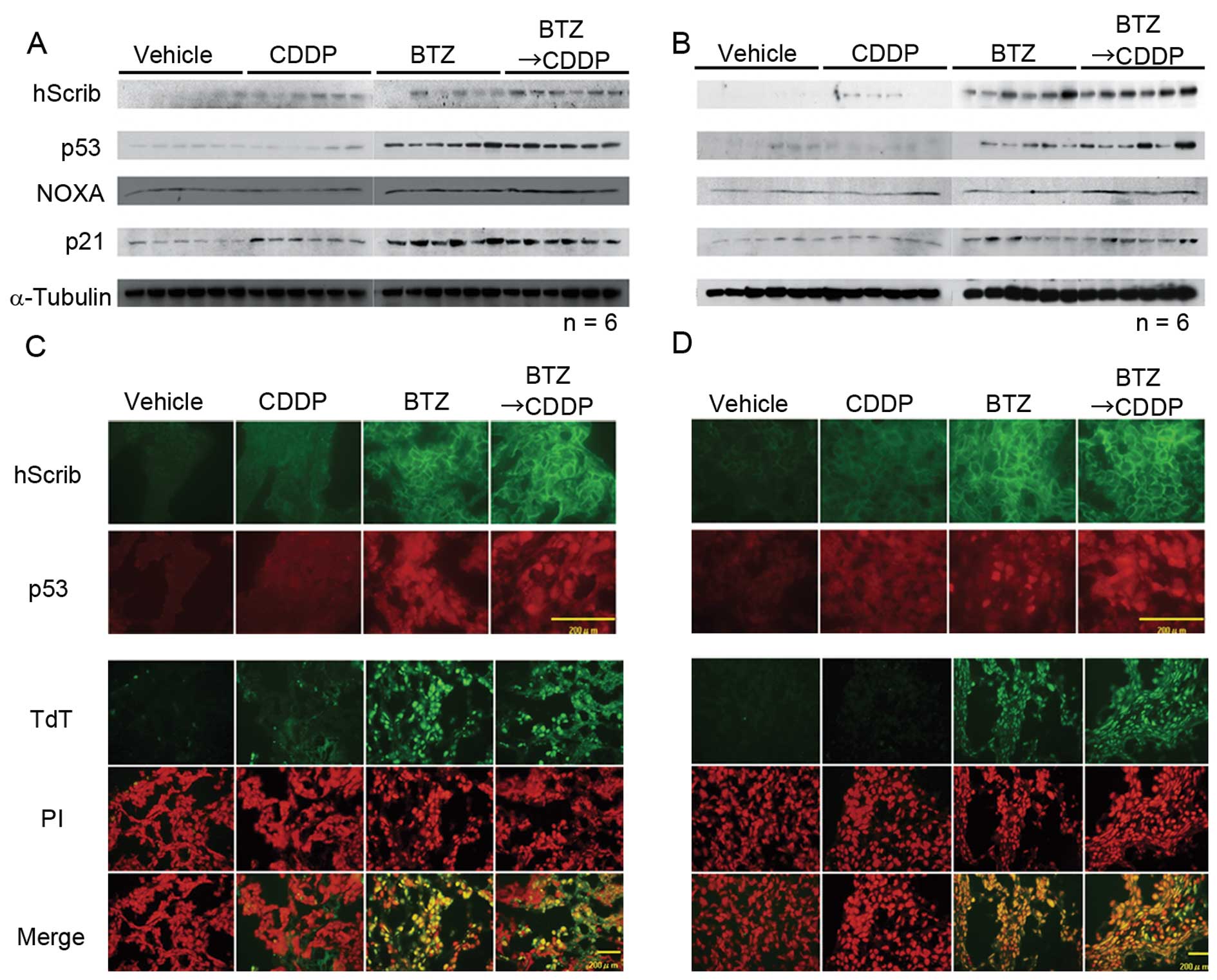Spandidos Publications style
Miyamoto Y, Nakagawa S, Wada-Hiraike O, Seiki T, Tanikawa M, Hiraike H, Sone K, Nagasaka K, Oda K, Kawana K, Kawana K, et al: Sequential effects of the proteasome inhibitor bortezomib and chemotherapeutic agents in uterine cervical cancer cell lines. Oncol Rep 29: 51-57, 2013.
APA
Miyamoto, Y., Nakagawa, S., Wada-Hiraike, O., Seiki, T., Tanikawa, M., Hiraike, H. ... Taketani, Y. (2013). Sequential effects of the proteasome inhibitor bortezomib and chemotherapeutic agents in uterine cervical cancer cell lines. Oncology Reports, 29, 51-57. https://doi.org/10.3892/or.2012.2072
MLA
Miyamoto, Y., Nakagawa, S., Wada-Hiraike, O., Seiki, T., Tanikawa, M., Hiraike, H., Sone, K., Nagasaka, K., Oda, K., Kawana, K., Nakagawa, K., Fujii, T., Yano, T., Kozuma, S., Taketani, Y."Sequential effects of the proteasome inhibitor bortezomib and chemotherapeutic agents in uterine cervical cancer cell lines". Oncology Reports 29.1 (2013): 51-57.
Chicago
Miyamoto, Y., Nakagawa, S., Wada-Hiraike, O., Seiki, T., Tanikawa, M., Hiraike, H., Sone, K., Nagasaka, K., Oda, K., Kawana, K., Nakagawa, K., Fujii, T., Yano, T., Kozuma, S., Taketani, Y."Sequential effects of the proteasome inhibitor bortezomib and chemotherapeutic agents in uterine cervical cancer cell lines". Oncology Reports 29, no. 1 (2013): 51-57. https://doi.org/10.3892/or.2012.2072


















